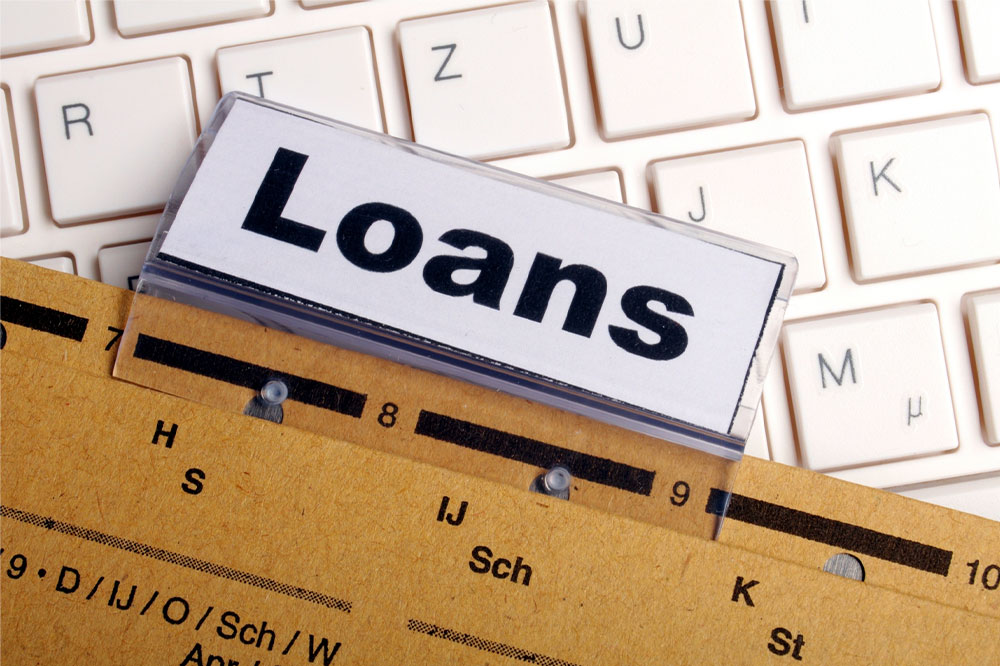6 common types of loans to know about

One may need money for various reasons, whether it is for funding further education costs, buying a new house, or starting up a new business. A steady income may cover most of one’s regular expenses, but major purchases or emergencies may require one to borrow funds. The banks and federal organizations offer many options for people to borrow money with varying interest rates and repayment schedules. Read on to understand the common types of loans.
Personal loans
Personal finance is a versatile option that can help fulfill various needs. It can be availed to cover expenses like emergency bills, vacation, medical treatment, relocation to a different city, home renovation, wedding, or buying expensive electronics like tablets, computers, washers, and refrigerators. Usually, the repayment period can range from a few months up to a couple of years and the interest rate can either be fixed or variable, depending on the preference of the borrower. One can apply for personal loans via a bank or an online lender.
One can choose between a secured and unsecured personal loan . In case of a secured loan, the borrower needs to provide a collateral that can back it up. This collateral can be any valuable, such as a vehicle, savings account, life insurance policy, or gold, which acts as a type of security for the lender who can claim it if the borrower fails to repay the loan amount. Secured loans are relatively cheaper than unsecured ones as the lender has a collateral backing. Alternatively, unsecured loans don’t need any collateral and are also known as signature loans since the lender does not have any security of the loan except the borrower’s signature. Unsecured loans are more convenient and quicker than secured ones, but they also tend to be costlier or have higher interest rates. Also, people with a good repayment history and a high credit score may be sanctioned such loans as the lender takes a major risk in issuing these.
Mortgage loans
If one wants to purchase a home but doesn’t have the funds to pay for it upfront, a mortgage loan can be a useful option. There are different types of mortgages available, including those offered by banks and credit unions. Apart from them, certain government-backed loan programs exist for particular groups of people, such as USDA loans for low-income homebuyers in rural areas, FHA loans for those with low to moderate income, and VA loans for active-duty service members and veterans.
The repayment schedule for a mortgage can last 10 to 30 years or even longer depending on the borrower’s financial situation. It is important to note that the property purchased with a mortgage loan serves as collateral, and foreclosure may occur if one does not make repayments as required.
Home equity loans
Home equity is the portion of house value that one actually owns after the balances of their existing mortgage or debts have been subtracted. So, a home equity loan becomes a sort of second mortgage. Lender disburses the loan amount in lump sum to the borrower and gets it back in installments until the amount is fully paid off. As a homeowner, one can use the home equity loans for any purpose, from financing home renovations to emergency medical bills.
The interest rate of this loan type is usually fixed, so the installment amount throughout the loan tenure won’t change. The security against this loan is the home itself, which can be subjected to foreclosure if one defaults on the payments. Before issuing this loan, the lender usually finds out how much of the homeowner’s current income goes into paying the original mortgage. This allows the lender to know if the homeowner can afford more debt. If it is more than 43% of one’s income, one may not be eligible for the same. Apart from this, the credit score, age, and employment details of the borrower are also reviewed. A few well-known home equity lenders are Bank of America, PNC Bank, and LoanDepot.
Small business loans
Small businesses are constantly in need of finance due to their level of activity, limited budgets, and potential year-on-year growth. Small business loans are a helpful solution for entrepreneurs in need of money or those who have trouble qualifying for traditional financing options. Although these loans come with high interest rates, they are easily accessible.
Small business loans are popular as they are backed by the U.S. Small Business Administration (SBA). Here, if a business owner defaults payment, the federal government will pay 85% of the loan amount to the lender, which significantly lowers their risk. Entrepreneurs get up to 25 years to repay this debt and they can use the loan amount for any business-related work. Although it may appear to be a desirable type of loan, its lending process is intricate and thorough, and one is required to have a high credit score to qualify. Entrepreneurs can also opt for equipment, working capital, and term loans, all of which can provide quick cash to them and make business funding easier.
Auto loans
Those wanting to purchase a vehicle can opt for a special type of loan for automobile. These are issued on the vehicle, which acts as the collateral. Usually, auto loans may have a tenure of three to seven years or more in some cases. Apart from banks and credit unions, at times the dealership from where one buys the vehicle may also offer a loan option. This, however, may be more expensive, so it’s best to shop around and research extensively before opting for the one with the best terms.
Student loans
This is a popular loan type is for students who want to pursue higher education. It is issued by banks, federal organizations, or private lenders. Usually, students prefer government loans since they may not require a credit check and have a wide range of repayment options, including income-based repayment, forgiveness, or forbearance, which is a temporary pause or reduction in monthly installments due to unforeseen circumstances.







